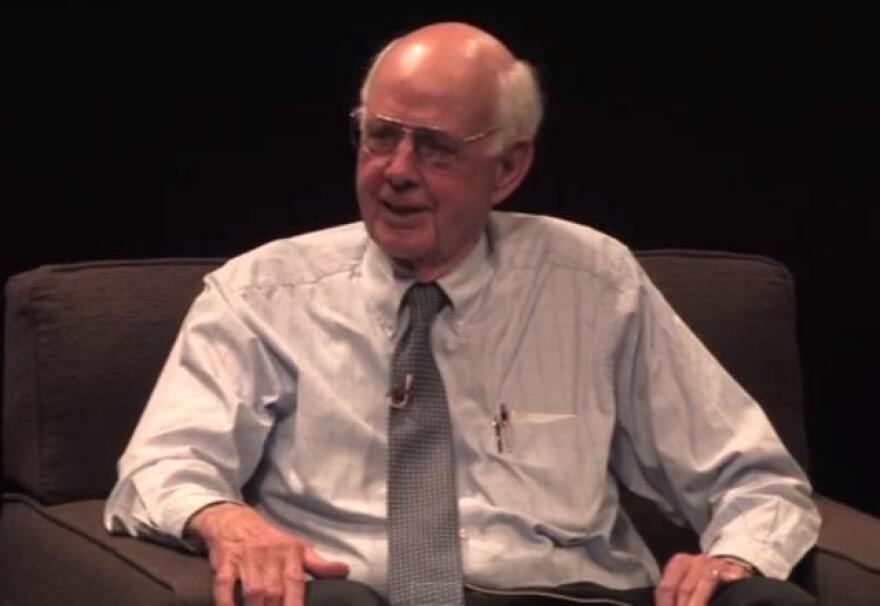Venerable poets Wendell Berry and Gary Snyder enjoyed a spirited discussion Wednesday evening on faith, land, ecology, justice and work, moderated by their publisher and long-time mutual friend Jack Shoemaker of Counterpoint Press. The discussion,a program of the annual Festival of Faiths, gave some rich context to the new book that Counterpoint is publishing, "Distant Neighbors," a collection of letters the writers have exchanged since 1973.We have the full video below, but here are six points to take away from their conversation.1. Faith and certainty aren't exactly the same. Snyder says, "The world is alive and there is a spirit in things." He also says, "I don't know nothing and I don't care that I don't know nothing. I'll just make do." Berry connects the ineffable and the mysterious in the natural world with his faith: "I don't think that can be empirically dealt with." But he also says, "I don’t have any clue what my attitude toward death would be if I didn’t have that tradition [of Christianity]. How we work is conditioned by our traditions. There's no use in pretending you know anything. This is an issue of belief."
2. Know when it's time to go home. Snyder left the U.S. for a dedicated period of religious study in Japan, but he says at some point, he knew he had to finish his studies and go back out into the world to practice. "Unless you’re going to be a dedicated monastic monk, you shouldn’t think your practice is rooted in one spot," he says. Berry left Kentucky for Stanford University, followed by stints in other cities, and assumed he'd become "a sort of literary vagabond" because he "bought the lie that people from places like I came from had to get away." A teaching appointment at the University of Kentucky brought him home, and he began farming near his grandfather's land.3. Learn how to live where you live. Snyder maintains that "most Americans are homeless - they don’t know where they are" and that a sacred sense of place is tied intrinsically to the nature of the landscape and knowing how to live within it. Berry insists on a practice of "right livelihood" - don't disturb your homeplace, and leave something for the future (which doesn't exist, he adds with a wry laugh). "What is good for us has to be good for nature, too," says Berry, who also says he is tired of the word environment: "Where can the line be between an organism and its environment? Environment is in you and passing through you. We're not surrounded by it, we're in it."4. Be friends with smart people who disagree with you. Snyder and Berry are both writers who work their land and care deeply about their place in the natural world. But they don't always see eye-to-eye, and spirited disagreement can be healthy. Berry says Snyder gives him "binocular vision," and their disagreements never lead to rancor. Snyder's Buddhist perspective seems to keep him somewhat at peace with human-made environmental damage ("Nature will take care of itself as long as it wants to.") while Berry, with his "renegade Christian" bent, actively pushes back ("It's never going to get so bad that a well-intentioned person can't do something to make it better for someone else."). Snyder favors the wild, while Berry upholds domesticity, and insists they are the same. Snyder replies: "But [wild animals] don't build fences." Berry's rejoinder: "For birds of a certain species, a song is a fence." 5. Teach your children well, and simply. Cook family meals, and give thanks before eating. Take your kids to work with you, if it's safe, and let them work alongside you. Do the right thing today, and favor the natural health of the local ecosystem. Take your time, and do your work well. 6. Wendell Berry would like to shoot a drone. Seriously, that's a direct quote.Watch the conversation, followed by an audience Q&A and a special musical guest.


